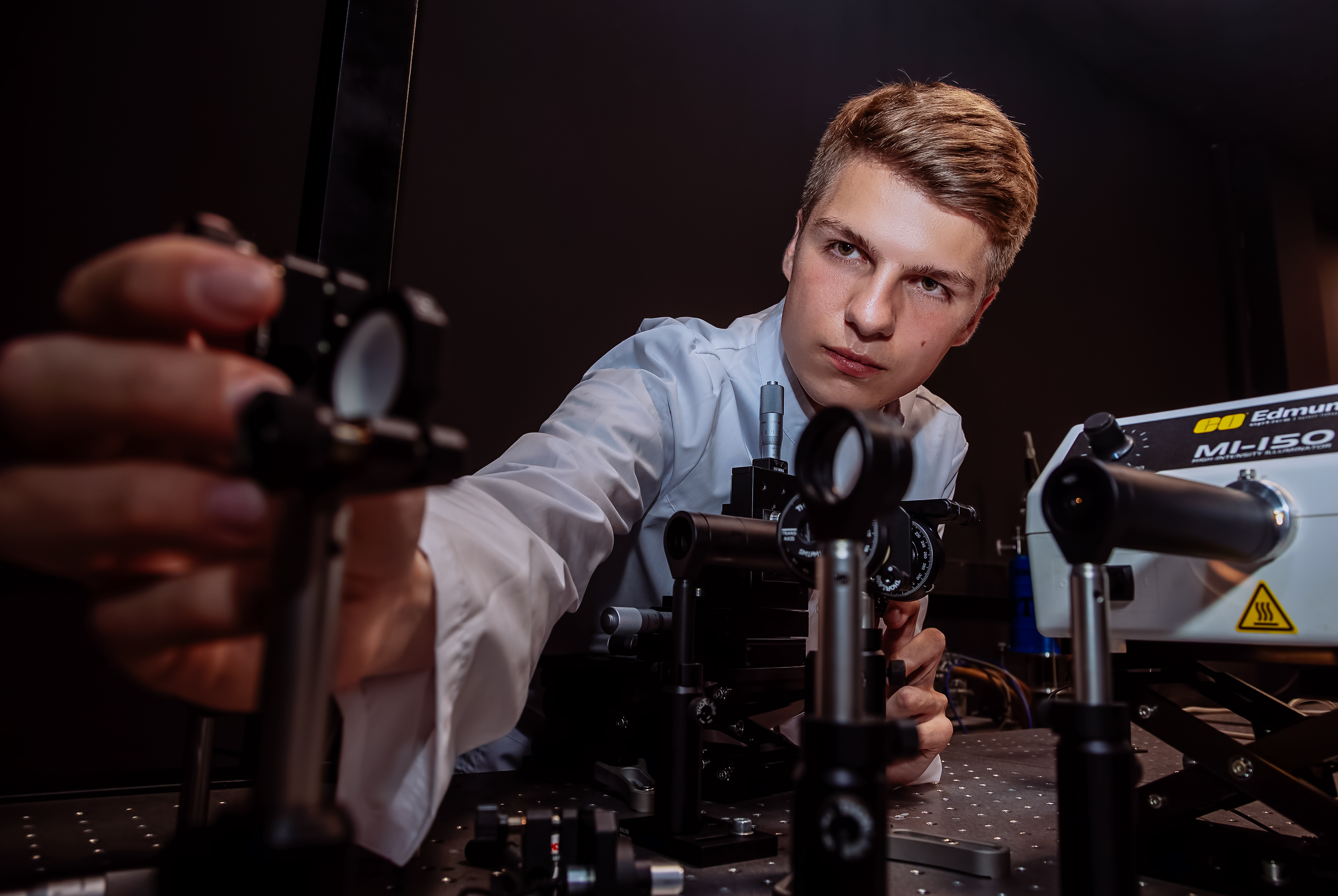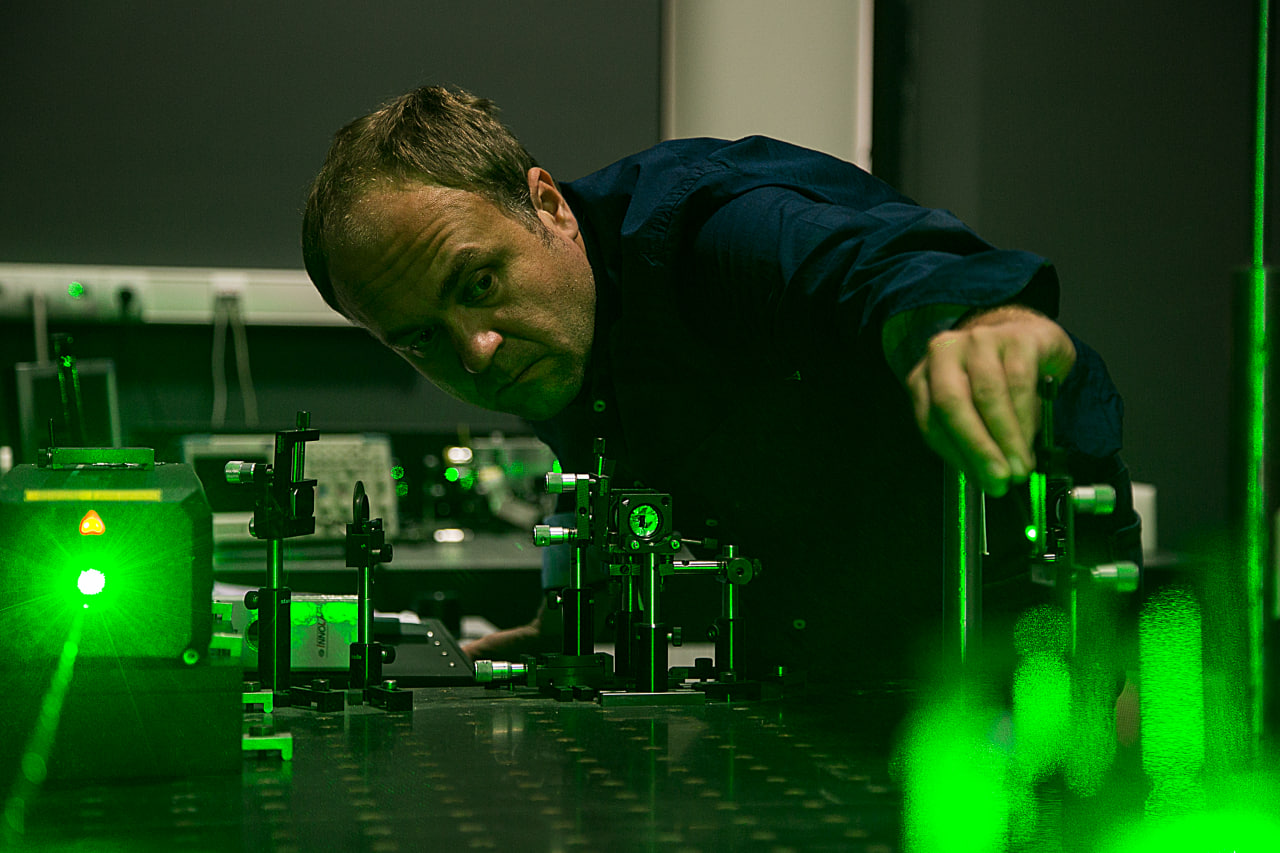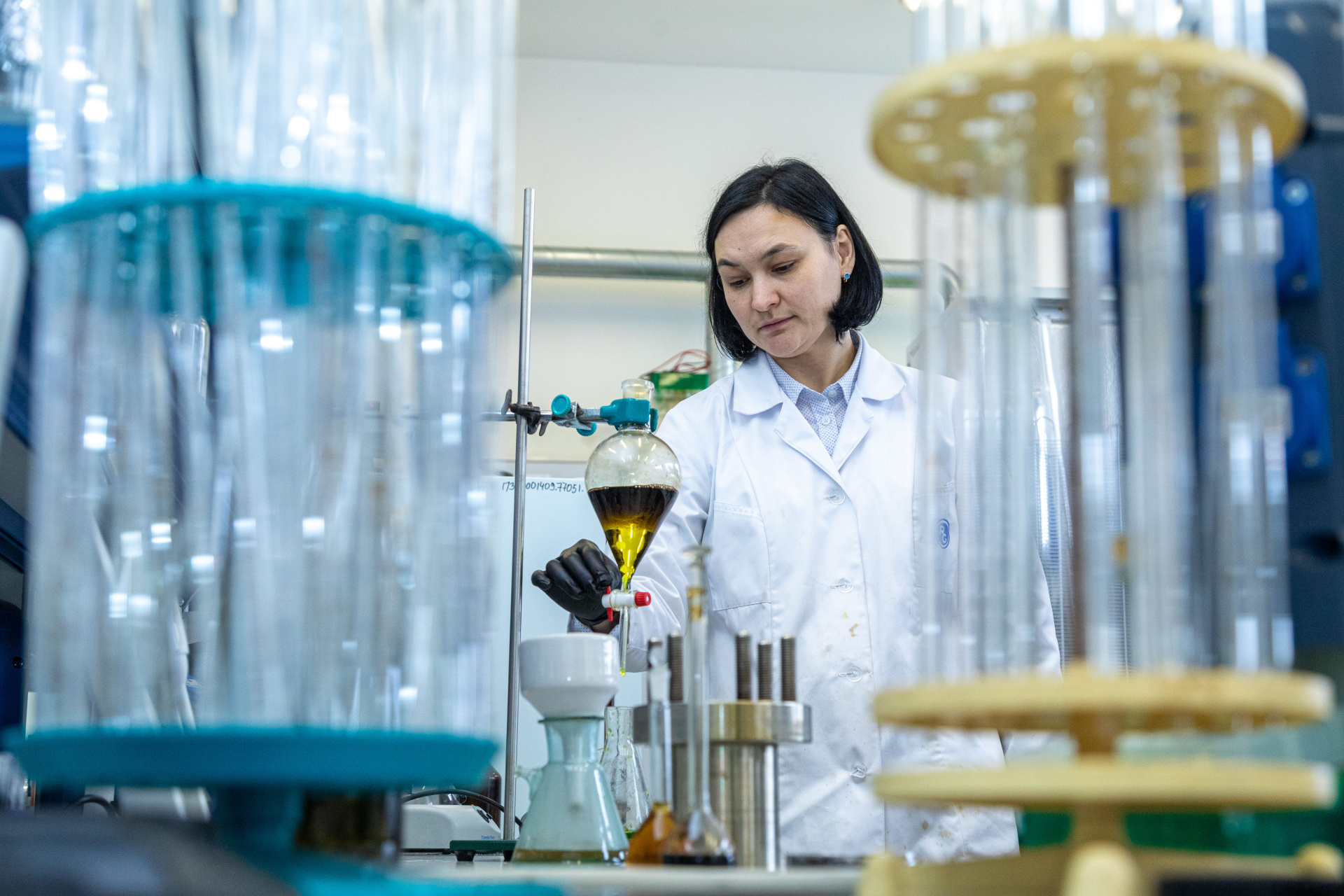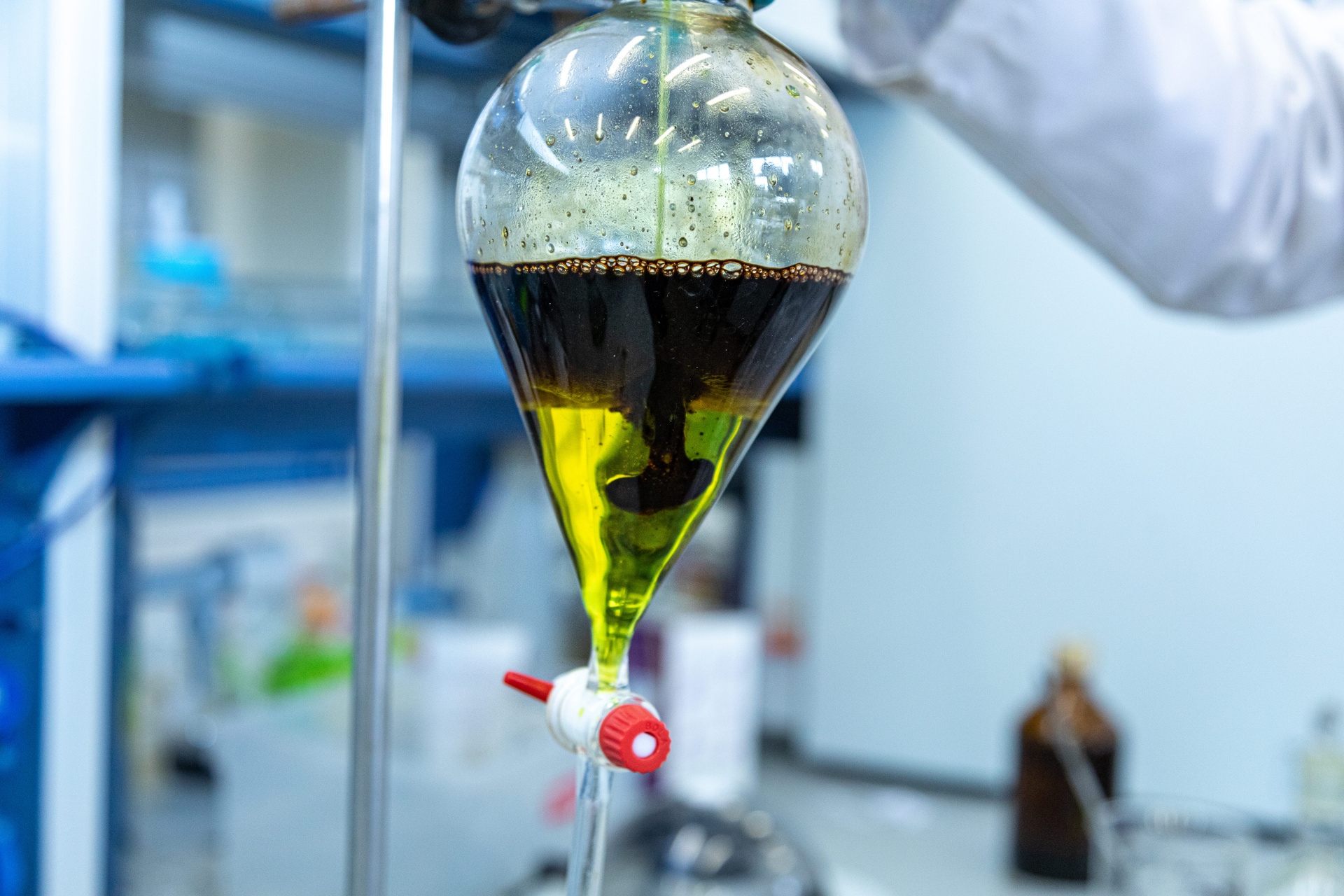
IKBFU is a major global scientific hub. The University's projects set trends in materials science, neurotechnology, genomics and philosophy, among others. IKBFU offers its researchers, undergraduate and postgraduate students a wide range of tools for scientific development, as well as considerable freedom in their endeavours. Immanuel Kant Baltic Federal University employs some of the world's most revered academics, who, according to the Stanford University, are ranked in the top 2% of the world's most cited scientists in 2024.
|
Ilya Samusev, Head of the Department for Research |
| IKBFU is involved in more than 30 main research areas: coherent X-ray optics for MegaScience class facilities, smart materials, nanomaterials, composite and polymer materials, industrial biotechnologies, photonics, neurotechnologies and artificial intelligence, molecular genetic research, philosophy, regional studies. All of them correspond to the strategy of scientific and technological development of the Russian Federation, as well as to the priorities of the Kaliningrad region. |
In 2024, 10 major projects under federal scientific and technical programmes for the development of synchrotron and neutron research and genetic technologies have been established with the involvement of scientific groups of the "Functional Nanomaterials" Research Centre, the"Coherent X-ray Optics for MegaScience Facilities" Research Centre and the Centre for Genomic Research. Research on climate-active greenhouse gases at the “Rosyanka” Carbon Measurement Supersite continues. Several scientific groups have carried out or continue to work on projects commissioned by the Rosatom State Corporation.
In 2024, the researchers of the "Functional Nanomaterials" Centre started the first phase of the "Development of a scientific device: multifunctional automated pulsed-laser deposition unit" project within the framework of the National Instrumentation Engineering Programme.
In three years, the scientific team will assemble a prototype unit for the synthesis of thin films and nanostructures. The device is necessary for Russian research centres to create applications in electronics, solar energy, biotechnology, etc. The device will make it possible to carry out tests in situ, as the process may be stopped at any phase. There are currently no analogues on the domestic market.
The first such pulse-laser deposition unit was assembled by the researchers on the basis of the “Fabrika” Science & Technology Park. Russian and international colleagues have repeatedly requested assistance in the development of the unique equipment.
In 2024, two groups of the "Fundamental and Applied Photonics. Nanophotonics" Centre carried out research and development work commissioned by the Rosatom State Corporation.
In the Laboratory of Coherent Optical Measurement Systems, scientists are involved in the development of a non-contact method that will make it possible to monitor the degree of wear of the inner core of the Tokamak fusion reactor. The inner processes take place in plasma at temperatures of several million degrees centigrade. The plasma itself must be trapped inside the reactor and may come into contact with its protective surface. Over time, it can break down, leading to accidents and costly repairs. To avoid this, IKBFU scientists proposed to utilise a non-contact method of dual-long-wave digital holographic interferometry to monitor the degree of damage to the reactor's inner surface.

As part of the second project, the research team developed stealth metasurfaces based on titanium oxide, gold nanoparticles and polyamide. The metamaterials are composite media with unusually wide possibilities of controlling electrophysical parameters and unique electrodynamic properties. Such artificially created materials have no analogues in nature in terms of their properties. The developed metamaterials can potentially be used in object cloaking systems.
The research team of the Scientific Centre "Smart Materials and Biomedical Applications" successfully completed a large project within the framework of the Russian Science Foundation's grant competition for world-class scientific laboratories in 2024.
Researchers proposed expanding the possibilities of additive technologies and developed new magnetic materials for 4D and 5D printing. The printer enables the creation of complex moulded and membrane structures that can be used in biomedical applications (e.g. implants) and in the field of sensor devices. The method of filament manufacturing has been patented.
The experiments also showed that magnetoelectric composites based on PVDF and CFO polymers have good biocompatibility and can be used as functional implants capable of modulating cellular behaviour. The findings demonstrate the prospects of using the materials in the field of regenerative medicine and tissue engineering.
In cooperation with the University of Malaysia Sabah in Malaysia, the team of the Industrial Biotechnologies Research Centre is developing a process for obtaining collagen from the Aurelia aurita and Rhopilema hispidum jellyfish, which inhabit the Baltic Sea and the seas of Malaysia. In the future, researchers plan to create a medical device based on the innovative collagen to treat wounds and burns. The study was made possible through an initiative of the Russian Ministry of Science and Higher Education designed to foster collaboration with South-East Asian countries.

|

|
In partnership with the Durban University of Technology of the Republic of South Africa and Sri Karan Narendra Agriculture University of India, in July 2024, the research team launched a project entitled "Cascade valorisation of algal biomass into energy, feed and biofertilisers: an integrated approach to bioremediation and sustainable development". With the support of the Russian Ministry of Education and Science, researchers were able to form an international team consisting of specialists in fundamental and applied research and development of biomass and waste conversion technologies to produce value-added products, including fuels.
The pain management support system was developed within the framework of the Priority 2030 programme by the team of the Baltic Centre for Neurotechnology and Artificial Intelligence. For patients, the system is a "navigator" for dealing with pain. With the help of a neuroprogramme, the patient is able to determine the approximate cause of pain, the level of pain, and make an appointment with an appropriate specialist. For the doctor, the programme acts as a tool for monitoring the patient's condition and the efficiency of the prescribed treatment.
The programme was created with the support of the Neuroscience and Neuropractice Consortium of the First Pavlov State Medical University and is currently being tested at several medical clinics in Saint Petersburg.
In 2024, the team of the Institute of Geopolitics and Regional Studies implemented a large-scale project to analyse the geopolitical risks of the Russian Federation in the Kaliningrad region. The experts analysed the geopolitical situation on Russia's western borders, as well as conducted comprehensive sociological research into the historical knowledge and socio-political attitudes of the Kaliningrad region's population.
The research group registered its own software solution for geopolitical analysis — "PERISCOP-R". The system provides storage, processing and presentation of data obtained in the course of monitoring the state of geopolitical security in the Kaliningrad region, but it is oriented towards solving analytical tasks for the whole border region of Russia.
Scientists from the Centre for Humanitarian Informatics have recreated the world of Immanuel Kant. The project brings together extensive research, archaeological data, archival materials and descriptions, transforming them into a virtual reality space..
The project started with fully reproducing the philosopher's house. Now six streets, including 91 objects with their descriptions, have been virtually reproduced. This is a small city, which you can walk through accompanied by an audio guide that describes the time when Koenigsberg, where Immanuel Kant lived, was part of the Russian Empire and the philosopher himself was a Russian citizen.

User profile for student
User profile for student
I give consent to the processing of the personal data provided, with Personal Data Processing Policy acquainted
Confirm consent